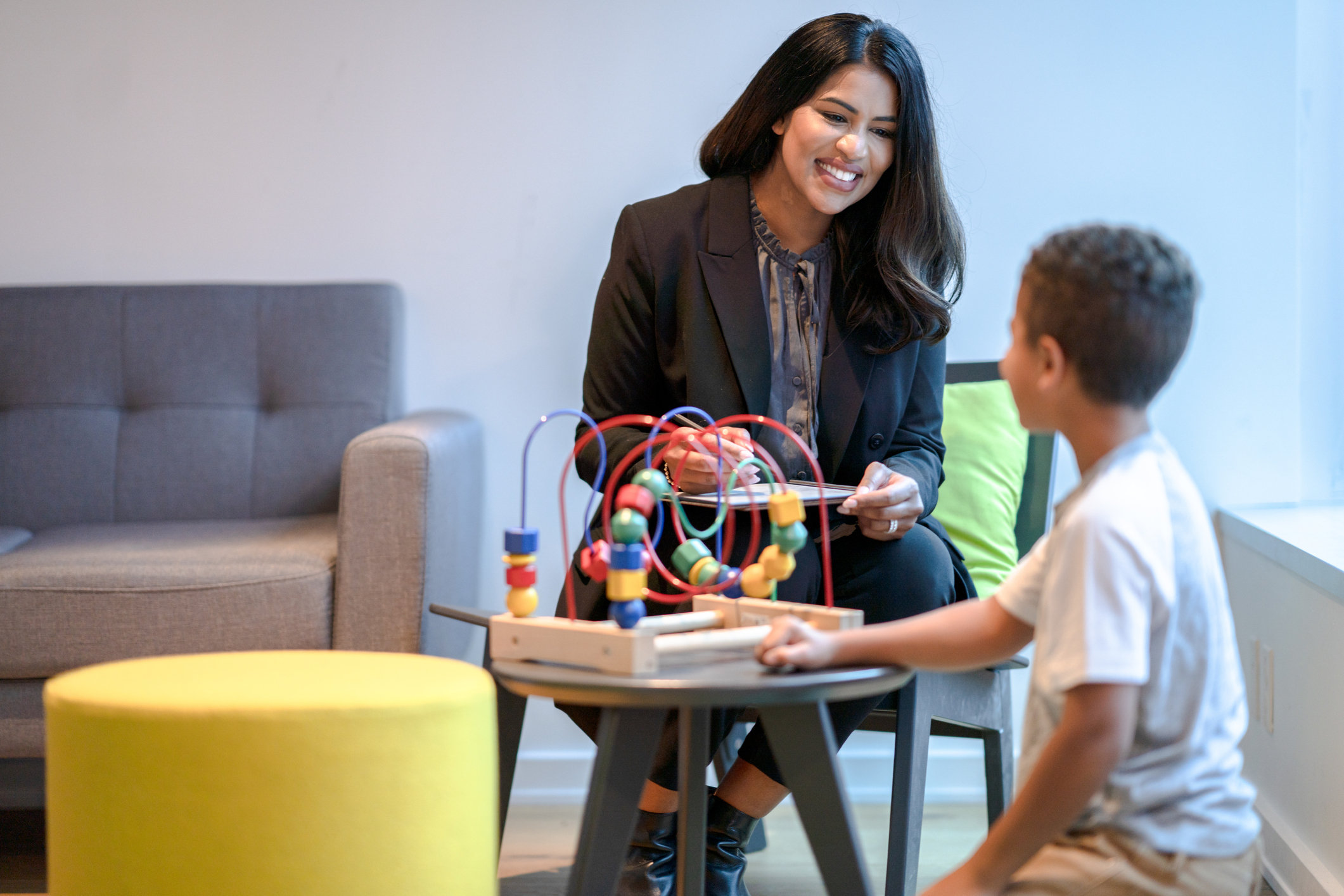Recently, the PracticeWise Blog published an article detailing ways to get started with behavioral and mental health services for your child. We discussed things like finding therapists and psychiatrists and how to decide if a provider is a good fit.
Working this process into your family’s already-packed schedule is important, but tricky. Kids also spend half of their waking hours or more at school; wouldn’t it be nice if they could get ongoing support where they spend so much time? What if school is one of the places they are struggling the most? Luckily, schools provide a variety of services (generally free!) that you may or may not be aware of. In this blog, we will cover some answers to frequently asked questions about mental health services in schools.
What services are available in schools?
Most schools offer some combination of the following services:
- School Counseling – (formerly “guidance counseling”) School counselors assist students with academic, personal, social, development, and educational/career development and advisement. You might consider reaching out to a school counselor if your child is having difficulties with things like adjusting to a new school, making friends, or balancing their courseload. Counselors may refer to other professionals for more intensive mental health needs.
- School Psychology – School psychologists focus conducting psychological assessment, recommending academic accommodations, implementing behavioral and learning interventions, and providing teacher or parent consultation to help meet the academic, social-emotional, or behavioral needs of students. You may ask to connect with a school psychologist if you suspect that your child has psychological concerns (e.g., learning disability, attention difficulties, anxiety, disruptive behavior) that interfere with their learning.
- Social Work – School social workers are trained in counseling, advocacy, crisis intervention, and referral to community support services to promote student success and well-being. They serve as a bridge between school, family, and community. You may consider reaching out to your school’s social worker if your student is struggling with things like attendance, mental health, substances, safety, or family instability or transitions.
- Speech Therapy – A speech therapist helps assess and treat speech and language concerns that interfere with a child’s school success. You might think of speech therapy as a service for children having difficulty with stuttering or producing certain sounds; however, speech therapy may also be something to explore for your child if you notice they struggle with expressive language (speaking, getting ideas into words), receptive language (listening), or social communication.
- Occupational Therapy – Occupational therapists have a far-ranging skill set to help your student be successful and independent at school. OTs can conduct evaluations, create care plans, and implement interventions or environmental modifications. While OT may be known for targeting handwriting and fine motor skills, it can also target areas important to your child’s mental health (e.g., independent living skills, executive functioning, emotional regulation, sensory processing, and general classroom integration).
- School Nursing – School nurses are available for acute care/first aid, health screenings, coordinating the management of chronic conditions, dispensing psychotropic medications, and to consult about health behaviors (e.g., eating, sleep, activity level, sexual behaviors for teens). You may consider your school nurse a resource for any support you may need keeping your child healthy at school.
- Prevention Programs – Many schools have system-wide prevention programs aimed at reducing youth instances of bullying, suicide, substance abuse, and other common concerns. All youth are entitled to the benefits of these programs.
What are important family and student rights to know?
Some (but not all) of the above services fall under the umbrella of a school’s special education program. According to the Individuals with Disabilities Education Act (IDEA), all children in the U.S. are entitled to a free and appropriate public education, which requires that all children be provided the tools they need to be successful, regardless of disability. Mental health or behavioral concerns that interfere with learning may qualify as disabilities.
Services like school psychology, speech therapy, and occupational therapy are typically reserved for those students going through the special education process. If you believe that your child has a mental health, learning, or behavioral concern that may meet criteria for a disability, you are entitled to a free evaluation process to determine eligibility at the school. However, eligibility and qualifying for services are not guaranteed.
It should be noted that IDEA is a federal law. Thus, public schools must comply with this law. Private schools, on the other hand, do not have this same requirement, so services and policies at these schools may differ. Luckily, many of the services listed in this post, such as school counseling, school nursing, social work, and prevention programs are available at most schools to all students without formal eligibility requirements.
How do I initiate services?
A great first point of contact at the school is always the child’s teacher, who often best understands a particular school’s procedures and chain of command. However, if your teacher is unsure of the best path or your child has multiple teachers, you may reach out to administration. Often a school counselor, vice principal, or special education teacher may be a first point of contact in connecting you with appropriate services. School front desk staff or the school’s website would likely be able to provide the contact information you need. It is always a good idea to put requests for help in writing (e.g., email), if possible, to make sure nothing falls through the cracks and because schools have legal requirements to respond to written requests for certain kinds of help (see special education above) within set timeframes.
Summary
In the above article, I attempted to provide relatively concise explanations of each of the types of professionals who may be able to help your child in school. You may have noticed that there is a lot of overlap in who might be able to help you address an issue your child is having. In reality, these folks’ job descriptions are quite complex, and they often operate as a team. There is often no “wrong” person to approach in starting to get help for your child, and having multiples angles from which to work a problem means ample mental health support for your student during their day.
—
About the Author
Taylor Thompson, Ph.D., serves as a distance learning developer and literature coder on the Services and Products Development team at PracticeWise. Learn more about Dr. Thompson on the PracticeWise team page.







